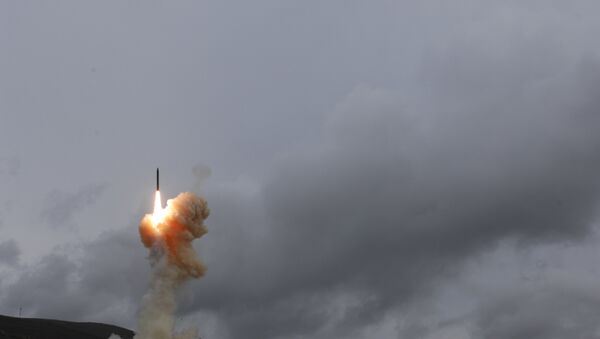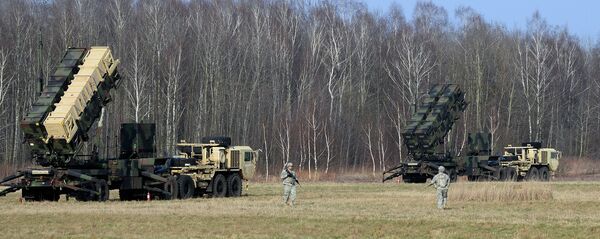WASHINGTON (Sputnik) — On Wednesday, US Congressman John Garamendi told Sputnik that the House of Representatives Armed Services Committee was considering a proposal for fielding intermediate-range missiles in response to Russia’s supposed infractions of the Intermediate-Range Nuclear Forces (INF) Treaty.
The 1987 US-Russian INF Treaty prohibits the use or development of intermediate range ballistic missiles (IRBMs) or ground-launched cruise missiles (GLCMs) within the range of 300 to 3,400 miles.
Russia has continually rejected US claims that it has violated the agreement.
"Considering the state of the US defense budget and the expected modernization of US strategic systems, it seems difficult to envision an appetite for an expensive [GLCM] program with relatively limited operational utility," St. John’s University Professor of Government David Kearn told Sputnik on Thursday.
Kearn, author of "Facing the Missile Challenge: US Strategy and the Future of the INF Treaty," said developing a GLCM would be expensive because of the requisite capabilities involved and the fact the United States has not built such a program in 30 years due to industrial base constraints.
"If it is a conventional missile, it will require relatively high accuracy and a fairly significant payload," Kearn noted. "A cruise missile option may be cheaper, but it is unclear what value a land-based GLCM would have over Tomahawks launched from other platforms."
In terms of basing, Kearn suggested, Central and Eastern European members of NATO would be more willing to host intermediate range missiles than the traditional Western European partners, but that alone would constitute a significant diplomatic effort on the part of Washington.
"The fact that the [Obama] administration has focused on quiet diplomacy with Russia on the perceived violations indicates that the preference is to get Moscow back into compliance."
Woodrow Wilson Center scholar Michael Kofman told Sputnik that he was unaware that Congressman Garamendi’s committee had the ability to authorize the development and deployment of intermediate range missiles in the first place in response to Moscow’s INF infractions.
"I'm not aware that this is within the purview of the [US House] armed services committee," Kofman stated.
Kofman explained that the proposal was a threat by the committee to make the US Defense Department explore intermediate range weapons.
"However, the United States has no need of them [intermediate range missiles]," Kofman added, "It's quite unlikely anything will come of this."
On Tuesday, the Russian Foreign Ministry said the deployment of US missile defense systems in Romania and Poland is prohibited under the INF treaty.




